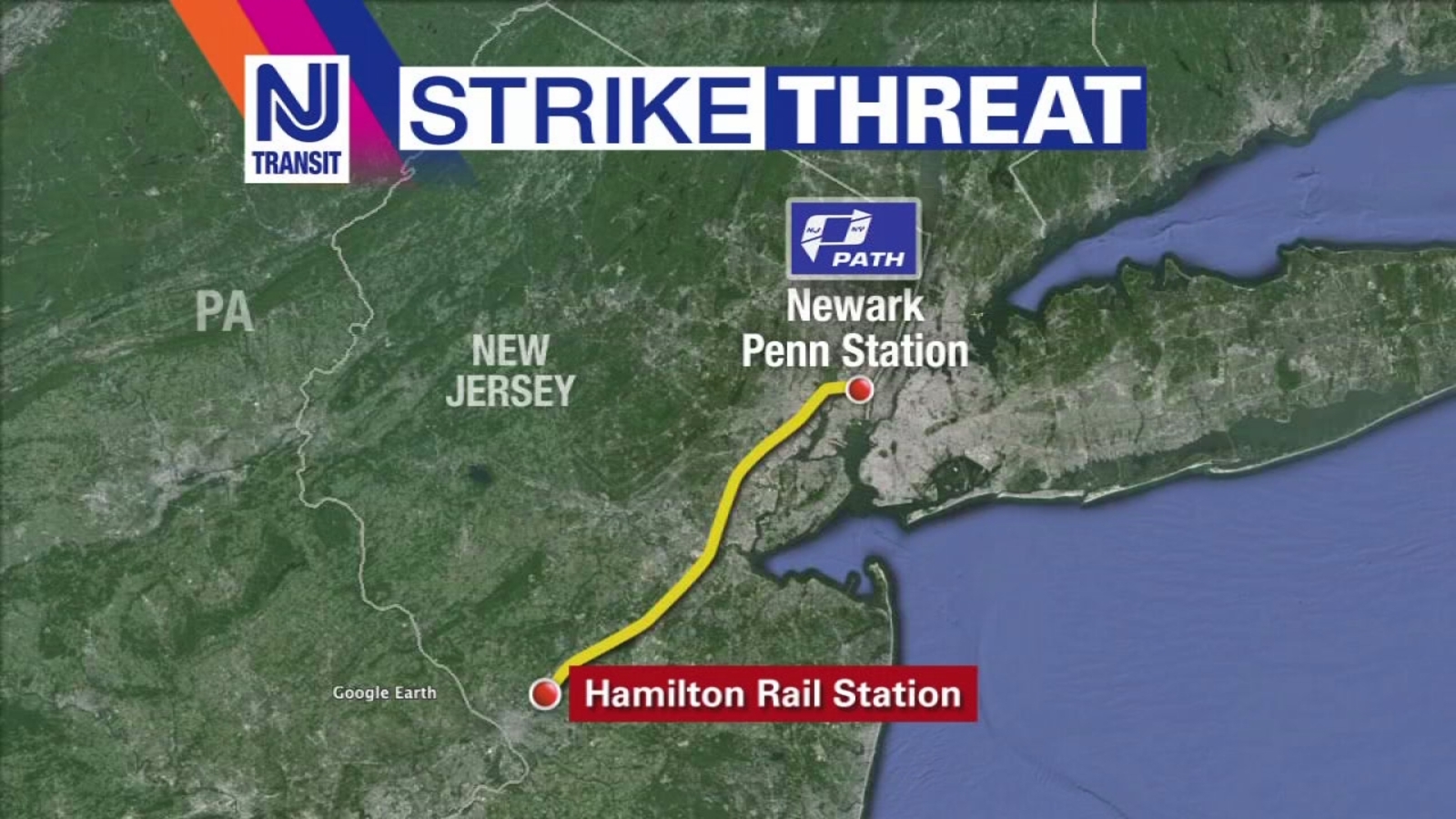New Jersey Transit Engineers Reach Tentative Deal, Averted Strike

Table of Contents
Key Provisions of the Tentative Agreement
The tentative agreement between NJ Transit and its engineers addresses several key sticking points that led to prolonged negotiations. While specific financial details are still being finalized pending union ratification, the agreement reportedly includes substantial improvements across various areas.
- Salary Increases: The agreement includes a significant percentage increase in salaries over the life of the contract, aiming to address concerns about compensation competitiveness within the industry. Exact figures are expected to be released upon final ratification.
- Benefits Enhancements: Improvements to health insurance coverage and retirement benefits are central to the agreement. This addresses concerns raised by the engineers regarding long-term financial security and healthcare costs. Details regarding specific plan changes are pending official confirmation.
- Work Conditions and Safety: The agreement includes provisions aimed at improving working conditions and enhancing workplace safety for NJ Transit engineers. This includes addressing concerns about workload, staffing levels, and equipment maintenance. Specifics on these improvements are expected shortly.
- Overtime Compensation: A critical point of contention was resolved with improvements to overtime pay and compensation structure. The agreement is said to provide fairer and more consistent overtime compensation for engineers. The exact structure of this compensation is yet to be fully disclosed.
- Grievance Resolution: The agreement incorporates a streamlined process for resolving grievances, aiming to improve communication and address issues more efficiently between NJ Transit management and the engineers' union.
"This agreement reflects our commitment to our dedicated engineers and ensures the continued smooth operation of our vital transportation system," stated [Insert quote from NJ Transit management, if available]. The union representative added, "[Insert quote from union representative, if available], highlighting the importance of the agreement in securing fair compensation and improved working conditions." The tentative agreement is a [Number]-year contract.
The Impact of the Averted Strike on Commuters
The averted New Jersey Transit strike is a huge relief for the hundreds of thousands of commuters who rely on NJ Transit's services daily. The potential disruption would have been enormous:
- Commuters Affected: An estimated [Number] commuters would have been directly affected by a strike, facing significant challenges in reaching their workplaces and appointments.
- Economic Fallout: A prolonged strike would have resulted in substantial economic losses. Lost productivity due to missed workdays, disruptions to business operations, and decreased tourism would have significantly impacted the New Jersey economy. Estimates put the potential daily cost in the millions of dollars.
- Transportation Disruptions: Commuters would have had to rely on alternative transportation options, leading to increased traffic congestion on roads, overcrowded bus routes, and potential delays.
- Business Impact: Businesses across New Jersey would have faced significant disruptions, impacting revenue and productivity. The ripple effects of a transportation shutdown can be far-reaching and devastating to the state's economy.
Passenger reactions to the averted strike have been overwhelmingly positive, with many expressing their relief and appreciation for the agreement reached between NJ Transit and the engineers' union. The long-term impact on ridership remains to be seen, but it's likely that the averted disruption will bolster public trust in the reliability of NJ Transit.
The Negotiation Process and Timeline
Negotiations between NJ Transit and the engineers' union were lengthy and complex, marked by several key events:
- Negotiation Start Date: Negotiations officially began on [Date].
- Key Milestones: [List key dates and events during negotiations, e.g., initial proposals, mediation sessions, near-breakdowns in talks].
- Mediation Role: [Detail the role of any mediators involved in facilitating the agreement].
- Negotiation Duration: The negotiation process spanned [Number] weeks/months, highlighting the complexity of the issues involved.
The overall atmosphere of the negotiations was tense at times, with significant disagreements over salary increases and benefits. However, through persistent dialogue and compromise, both sides eventually managed to bridge the gap and reach a mutually acceptable agreement. A key breakthrough came with [Mention a key turning point in the negotiations].
Future Implications for New Jersey Transit
This tentative agreement carries significant implications for the future of NJ Transit:
- Impact on Other Unions: The terms of this agreement could potentially set a precedent for future contract negotiations with other unions within NJ Transit.
- Financial Implications: The financial implications of the agreement on NJ Transit's budget need careful consideration. Increased salary and benefit costs will need to be factored into the agency's future financial planning.
- Future Negotiations: This agreement's terms could influence the approach taken in future contract negotiations, both within NJ Transit and in other public transportation systems.
- Ratification Process: The agreement now moves into the ratification process, requiring approval from the union membership. The outcome of this process will officially confirm the terms of the agreement.
The agreement also needs to be considered within the broader context of public transportation funding and labor relations in New Jersey. Securing adequate funding for public transportation is crucial for maintaining and improving service quality, and ensuring fair compensation for its workforce is a key component of this equation.
Conclusion
The tentative agreement between New Jersey Transit engineers and management successfully averted a potentially devastating New Jersey Transit strike, preserving the smooth operation of a vital transportation artery for the state. The agreement covers crucial aspects such as salary increases, enhanced benefits, improved working conditions, and a more efficient grievance resolution process.
Call to Action: Stay informed about the ratification process of this crucial agreement and the future of New Jersey Transit services. Continue to follow updates on the New Jersey Transit strike situation as the agreement moves towards final approval. Learn more about the impact of this agreement on New Jersey's commuters and economy.

Featured Posts
-
 The China Market Hurdles For Bmw Porsche And Other Automakers
May 21, 2025
The China Market Hurdles For Bmw Porsche And Other Automakers
May 21, 2025 -
 Occasionverkoop Abn Amro Neemt Flink Toe Analyse Van De Markt
May 21, 2025
Occasionverkoop Abn Amro Neemt Flink Toe Analyse Van De Markt
May 21, 2025 -
 Nyt Mini Crossword Solutions March 24 2025
May 21, 2025
Nyt Mini Crossword Solutions March 24 2025
May 21, 2025 -
 Huuhkajien Avauskokoonpano Naein Muutos Vaikuttaa
May 21, 2025
Huuhkajien Avauskokoonpano Naein Muutos Vaikuttaa
May 21, 2025 -
 Liverpool Juara Liga Inggris 2024 2025 Para Pelatih Di Balik Kesuksesan The Reds
May 21, 2025
Liverpool Juara Liga Inggris 2024 2025 Para Pelatih Di Balik Kesuksesan The Reds
May 21, 2025
